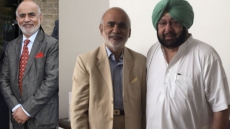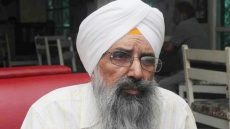The NDA Government has opposed de-criminalising adultery, saying it will destroy the institution of marriage in India.
"Section 497 supports, safeguards and protects the institution of marriage," the Centre told the top court in an affidavit.
"It is submitted that striking down Section 497 of IPC and Section 198(2) CrPC will prove to be detrimental to intrinsic Indian ethos which gives paramount importance to the institution and sanctity of marriage," read the affidavit filed by the Ministry of Home Affairs.
The affidavit has been filed in response to a petition challenging the constitutional validity of Section 497 of the Indian Penal Code, which seeks to punish only men for adultery and treats women involved in the crime as victims.
The Law Commission of India was actively considering the issue since December 2014, the Centre said.
An Italy-based NRI—Joseph Shine—has challenged the provision that prescribes a jail term of up to five years or fine or both, terming it “unjust, illegal and arbitrary and violated of citizens’ fundamental rights”. He questioned the gender bias in the provision drafted by Lord Macaulay in 1860.
A three-judge Bench headed by Chief Justice of India Dipak Misra had on January 5 referred the issue to a five-judge Bench, noting that though criminal law was based on gender neutrality, the concept was absent in section 497 of the Indian Penal Code (IPC) that criminalized adultery.
The NDA Government said: "Decriminalisation of adultery will result in weakening the sanctity of marital bond".
It said the provisions of law under challenge had been specifically created by the legislature in its wisdom to protect and safeguard the sanctity of marriage, "keeping in mind the unique structure and culture of Indian society".
A Four-judge Bench had in 1954 upheld the validity of Section 497 IPC saying it did not violate right to equality. In 2011, the top court ruled that a woman in an illicit relationship with a married man could not be punished for adultery despite being an abettor.
However, referring to societal transformation and changes in concepts of gender equity and gender sensitivity, the CJI’s Bench had said earlier rulings needed to be examined by a larger Constitution Bench in the changed scenario.
“It is perceivable from the language of the provision the fulcrum of offence is destroyed once the consent of husband is obtained. Viewed from that scenario, the provision creates a dent on the independent identity of women,” the Bench had said during the hearing in December 2017.
Invoking a recent nine-judge Constitution Bench verdict that declared right to privacy a fundamental right under Article 21 of the Constitution, the petitioner contended, “Sexual privacy is an integral part of right to privacy.”
“Section 497 of the IPC is prima facie unconstitutional on the ground that it discriminates against men and violates Articles 14 (right to equality), 15 (right to non-discrimination) and 21 (right to life, liberty and privacy) of the Constitution of India,” read the petition.
Shine has also challenged Section 198(2) the Criminal Procedure Code, which allows a husband to bring charges against the man with whom his wife has committed adultery.
“When the sexual intercourse takes place with the consent of both the parties, there is no good reason for excluding one party from the liability,” Jise contended terming Section 497 IPC as an “archaic” and “outdated” provision.
The petitioner said even the Law Commission had in its 42nd report in 1971 recommended removal of the exemption provided for women from being prosecuted and reduction in the punishment for the offence from five years to two years.
Justice VS Malimath Committee, which recommended measures for revamping the criminal justice system, had said adultery should be made gender neutral. “Whosoever has sexual intercourse with the spouse of any other person is guilty of adultery,” it had said seeking to replace the existing provision.
However, the National Commission for Women had in 2006 recommended de-criminalising adultery but opposed making it gender-neutral.
Noting that the global trend was to decriminalize adultery; Jose said it was not a crime in the UK and in most of the European countries. In 2015, the South Korean Supreme Court struck down the law that stipulated imprisonment for two years or less for adultery and interdiction.



